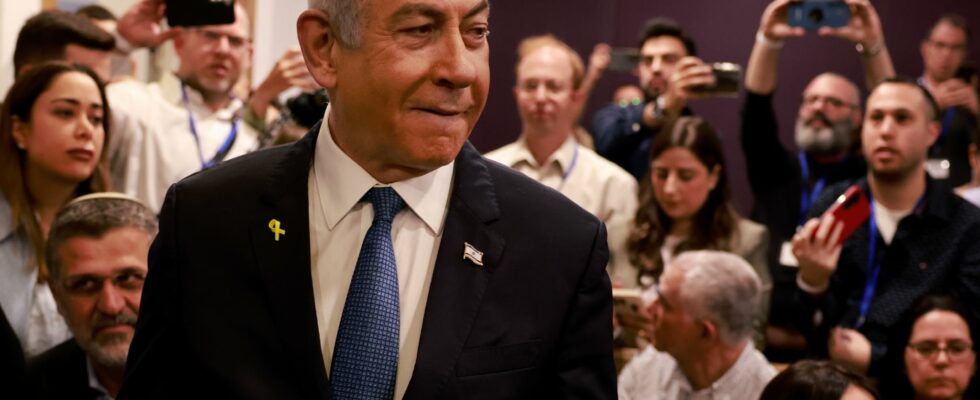In the midst of the resumption of his trial for corruption, fraud and breach of trust begun in 2020, the Israeli Prime Minister, Benjamin Netanyahu, is splashed by another scandal involving one of his ex-advisors, accused of alleged leak of documents covered by the secret. Eli Feldstein was indicted on suspicion of having disclosed a classified document concerning the negotiations for the release of hostages kidnapped during the Hamas attack on October 7, 2023 in Israel and held in Gaza, in order to influence in favor of the Prime minister critical media coverage of him.
According to Benjamin Netanyahu’s detractors, this affair highlights deep-rooted corruption within his cabinet, as well as the troubled relations between high-ranking soldiers and politicians from the right-wing government coalition.
Arrested at the end of October and placed in pre-trial detention before being placed under house arrest last week, Eli Feldstein allegedly received classified information from a reserve non-commissioned officer, whose identity has not been revealed.
During a press conference Monday evening, on the eve of the resumption of his trial for corruption, the accusations of which he vehemently contests, Benjamin Netanyahu was questioned about this affair. He said the accusations against his ex-advisor were part of a broader attack on him and his supporters. A few weeks earlier, he had described the latter’s arrest and indictment as a witch hunt and an abuse of the justice system.
Attack on state security
Eli Feldstein and the deputy were indicted in November for endangering state security. The document that the first is accused of having leaked to the popular German daily Bild tended to show that the then leader of Hamas, Yahya Sinouar, was the main obstacle to an agreement for the release of the hostages, and that the demonstrations in Israel for their return were counterproductive.
The army has since rejected the information contained in the document, which was in line with the line defended by Benjamin Netanyahu, opposed to a ceasefire agreement with the Palestinian Islamist movement against which Israel is at war in the Strip. of Gaza since October 7, 2023.
The case is particularly serious, with the charges against Eli Feldstein and the non-commissioned officer carrying a penalty of up to life imprisonment.
A document voluntarily disclosed for political reasons
Israel’s attorney general estimated that Benjamin Netanyahu’s former adviser had leaked the document for political reasons in September, two months after receiving it, when public pressure against the prime minister was mounting. extremely strong. The army then announced the discovery in the Gaza Strip of the bodies of six hostages, killed at point blank range by their captors only a few days earlier, causing shock in Israel.
According to Barak Medina, professor of law at the Hebrew University of Jerusalem, “Eli Feldstein’s lawyer argued that Benjamin Netanyahu had approved the delivery of this document to Bild“, with a view to disrupting negotiations on the release of the hostages.
Critics of Benjamin Netanyahu accuse him of wanting to continue the war in Gaza to the detriment of the hostages, in order to remain in power to escape his corruption affairs and a commission of inquiry into the security and military fiasco of October 7.
Already three corruption cases
His corruption trial, which resumed on Tuesday, opened in 2020 but was interrupted by the war in Gaza. The Prime Minister is being prosecuted for corruption, fraud and breach of trust. In the first case, he and his wife, Sara, are accused of having accepted more than $260,000 worth of luxury goods (cigars, jewelry, champagne) from billionaires, including Israeli-born Hollywood producer Arnon Milchan and Australian businessman James Packer, in exchange for political favors. In the second, Benjamin Netanyahu is prosecuted for having tried to negotiate more favorable coverage from Arnon Mozes, publisher of the daily Yedioth Aharonoththe first paid national daily, in exchange for the promise of a law that would have hindered the circulation of the free newspaper Israel Hayom, a popular title in Israel.
In the latest case, the Israeli leader is accused of having tried to facilitate a merger desired by a close friend, Shaul Elovitch, then majority shareholder of Bezeq, the country’s largest telecommunications group, in exchange for favorable coverage of its politics on the popular news website Walla, also owned by Shaul Elovitch.
